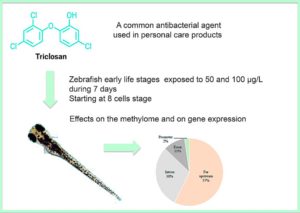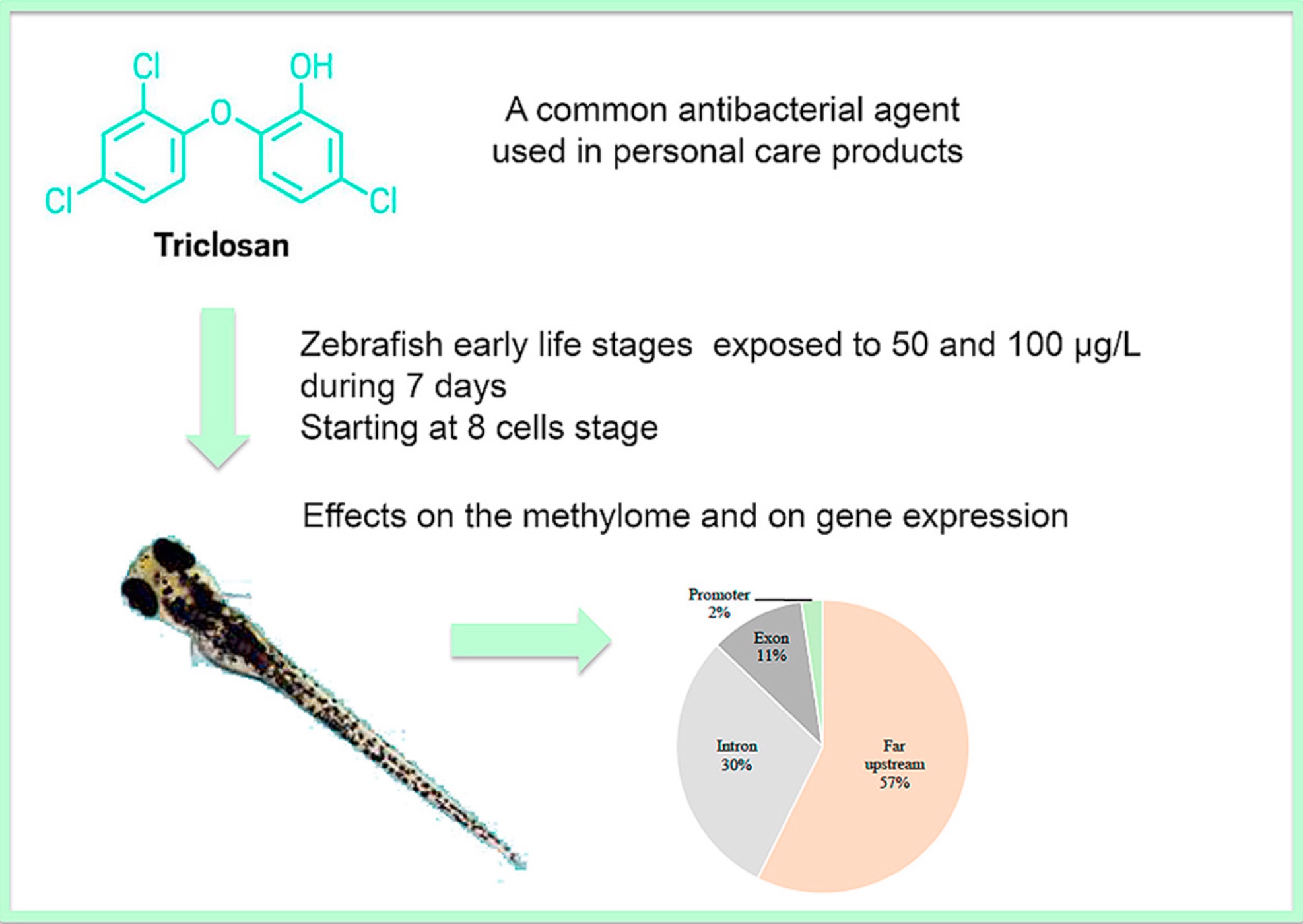A new article from Elodie Falisse’s thesis has been published in the journal Environmental Pollution. This study is the first in collaboration with Dr Aniruddha Chatterjee from the University of Ortago, New Zealand, which aimed at identifying the epigenetic effects of an exposure to a common pollutant (the antibacterial agent Triclosan) during the development of zebrafish. Triclosan is commonly used in soaps, toothpastes and cosmetics and is suspected to induce some endocrine disruption. Here we showed that DNA methylation, a common epigenetic mechanism, is affected by exposure to 50 and 100 µg/L of Triclosan. However, each exposure concentration showed specific pattern of alteration and is correlated to specific phenotypic effects reported in a previous study (sensitization at 50 and acclimation at 100 µg/L). It also came out that differential DNA methylation is mainly reported in introns and intergenic regions, the former being correlated to gene expression. Surprisingly, very few significant effects have been found in promotor regions. Further studies will investigate the possible long-term consequences of these alterations and the possible implications in terms of fitness and adaptation to environmental pollutants.

